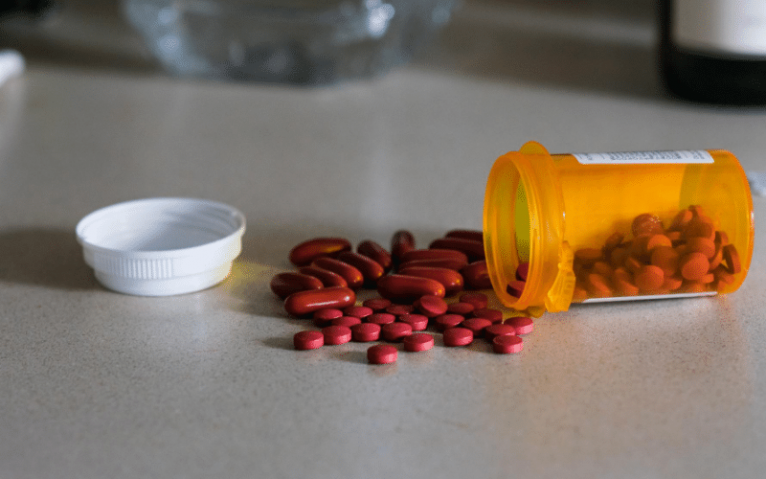There are many theories about the cause of addiction and how to treat it. Writer Johann Hari thinks we may have been wrong about all of it. Hari discusses this, and his ideas for a new path forward, in his TED Talk. Hari shares his belief that addiction is the result of a lack of connection. Hari’s ideas challenge almost everything we associate with substance abuse and the cause of addiction.
The Experiment
The general view of addiction is that if a person at risk of developing an addiction uses a habit-forming drug (like heroin), dependence is inevitable. That story has played out millions of times throughout history. Go into any treatment center today, and you’ll find lots of people whose experience confirms this.
In his work, Hari talks about a classic experiment from the 1900s. A lab rat had one water bottle laced with heroin and one bottle of plain water. The rat drank from the heroin bottle until it overdosed and died. What some people don’t know is that a professor named Bruce Alexander challenged that experiment in the 1970s. He created an alternative analysis and included more than one rat. These rats were housed together in a cage full of toys and food. More importantly, they had social connections with each other.
Almost none of them chose the heroin-laced water.
At the same time that Professor Alexander was doing his experiment, the Vietnam War was raging. According to Hari, almost 20% of US troops in Vietnam were using heroin during the war. It stands to reason that when they returned to American soil, we’d have a significant drug problem on our hands. But that wasn’t what happened.
According to Hari and other sources, 95% of Vietnam veterans stopped using heroin when they returned home. Of course, that doesn’t touch on the PTSD and other forms of mental illness many Veterans experienced after the war. However, it does back up Professor Alexander’s rat experiment.
A New Name for Addiction
Another professor mentioned in Hari’s TED Talk goes by the name of Peter Cohen. Cohen suggests that addiction should be called “bonding” due to the social nature of humans. Many, including Hari, believe that if we don’t bond with people, we’ll end up bonding with something else.
“Human beings have a natural and innate need to bond. And when we’re happy and healthy we’ll bond and connect with each other…But if you can’t do that — because you’re traumatized or isolated or beaten down by life — you will bond with something that will give you some sense of relief. Now that might be gambling, that might be pornography, that might be cocaine, that might be cannabis, but you will bond and connect with something because that’s our nature, that’s what we want as human beings.”
Huffington Post
The Many Risk Factors of Substance Use Disorders
Drug addiction, just as alcohol abuse, isn’t the result of a single factor. People who develop an addiction are prone to environmental factors, peer pressure, genetics, and a myriad other factors that play a significant role.
This concept brings up the interesting idea that addiction is the result of a lack of human connection. While we can’t discount the underlying causes of addiction – things like genetic predisposition, trauma, and mental illness – there is something to be said for this idea.
We’re Increasingly Connected & Increasingly Alone
Towards the end of his talk, Hari touches on how technology has made us increasingly connected but also increasingly lonely. He addresses how this can be a real cause of addiction.
Almost the entire human race uses the internet, and a large portion is on social media. Facebook alone boasts billions of active users. As we’ve become dependent upon social media for our connections, we may have lost an element of depth in our relationships.
What this means is that fighting addiction could be about connecting with each other. For example, Hari discusses interventions. Usually, families use “tough love” to get the addict or alcoholic to agree to treatment.
While that sort of approach is effective at getting people into treatment centers, it can also create a disconnect in the family. Instead of taking this hardline approach, Hari suggests that we surround someone struggling with connection and love.
Similarly, we encourage family members to engage in family therapy. Through the use of effective family therapy, the addict can develop deeper connections to the family, which lasts far longer than addiction treatment.
Is This Approach Practical?
Human connection is vital. Friendship and relationships are vital to recovery. But sometimes, an addict or alcoholic can’t even recognize those things until they are safely in addiction treatment.
However, a practical approach to battling drug and alcohol addiction needs to be comprehensive. At Lighthouse Recovery Institute we use a combination of medication-assisted treatment options to ease withdrawal symptoms, and cognitive-behavioral therapies, paired with support groups, and aftercare recovery programs to help people maintain sobriety. We believe recovery requires an evidence-based approach to set the foundation for long-term sobriety.
If you or someone you know is struggling with addiction, know that there isn’t a one-size-fits-all cause of addiction. It takes an entire team, a dedicated group of professionals, a supportive family, and the right treatment plan to win the battle against addiction. Don’t wait any longer. Contact us today and speak with our admission specialists to learn more about our addiction treatment programs.









